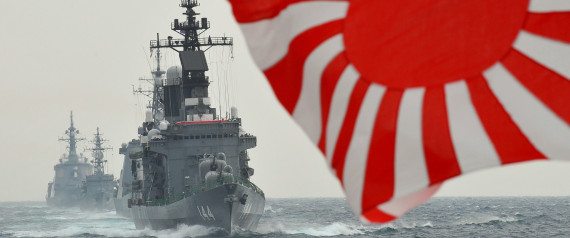http://www.asyura2.com/14/senkyo170/msg/728.html
| Tweet |


http://blog.goo.ne.jp/aibatatuya/e/52f984359a89827d4a97566684f37b07
2014年09月02日
以下のように、琉球新報が伝えているが、多少我田引水な受け止め方をしているようだ。ジョセフ・ナイはリベラルな顔をして、永遠に日本を配下におくことが必須であり、自衛隊の米軍協力度を増加させることは素晴らしいことだが、常に、その軍事力は、アメリカ軍のコントロール下にあるべきだと言っている。挙句に、沖縄基地の返還は行わず、兵隊を自衛隊にして、米軍管理下に置くと云う話で、沖縄の基地負担軽減に、実質的意味はない。
≪ 「在沖基地は脆弱」 ナイ氏寄稿 日米同盟再考求める
【ワシントン=島袋良太本紙特派員】米民主党系の対日政策に強い影響力を持つジョセフ・ナイ元米国防次官補がこのほど米ニュースサイト「ハフィントン・ポスト」に寄稿し、「多くの日本人は日米同盟の非対称性に憤りを抱いており、特に沖縄の基地負担に対する怒りもある」と指摘した。ナイ氏は「中国のミサイル技術が発展し、沖縄の米軍基地は脆弱(ぜいじゃく)になった」とも指摘。沖縄に米軍を集中させる理由として日米両政府が説明してきた「地理的優位性」が、実際は乏しくなり続けていることもあらためて認める形となった。
論文寄稿は8月7日付。ナイ氏は「日米は同盟の構造を再考しなくてはならない」と強調した。同盟の将来像について、安倍政権が集団的自衛権の行使容認に 踏み切ったことを「前進」と評価。この文脈で在日米軍基地について「次第に日本の管理下に移していき、米軍はこれらの施設をローテーション(巡回配備)す ることが長期的なゴールだ」と指摘した。
一方、「ただその過程は注意深く行われるべきだ」とし、中国のミサイル技術向上で在沖基地が「脆弱」になったことに触れ、「米軍にとっての利益が減った ために基地を日本に返すとの認識は避けなくてはならない」と強調。日米両政府で、日米同盟に対する米側の「約束」を再確認した上で、米軍基地の管理権移行 を進める合同委員会を設置すべきだと提言した。
ナイ氏は2011年、米紙ニューヨーク・タイムズに寄稿し、「海兵隊を県内で移設する現行計画が沖縄の人々に受け入れられる余地はほとんどない」と分析した上で、在沖海兵隊のオーストラリア移転を提言した経緯がある。 ≫(琉球新報)
以下がイカサマ・リベラリストのJoseph Nyeが、Huffington Postに寄稿した一文だが、どうも琉球新報が伝える意訳とは異なるニアンスも含まれている。見出し自体が、自衛隊の集団的自衛行使はアジア情勢にとって極めて有効であり、歓迎する。また、将来的には、沖縄米軍基地を沖縄自衛隊基地として強化することが重要だと言っているようだ。筆者の適当な意訳なので、興味のある方はじっくり原文を読んでいただきたい。
筆者の意訳の意訳だが(笑)。早い話、矢面に立つ実戦部隊は自衛隊に行わせ、沖縄米軍基地を、自衛隊基地のような装いに衣替えはするが、実質的管理は手放さないので、日本人は自国の軍事基地と見誤るのだから、ベストな選択だ。そういう意味で、安倍政権の自衛隊の集団的自衛権行使の決定は、日米同盟の濡れ手で粟度が益々強化され、非常に都合の良いことになっている。無論、自衛隊が現在米兵が使っている余剰の武器の払い下げを受けたり、新たに米軍産企業から水増しされた価格で買い取る戦闘機等々、そのすべてに好都合な成り行きだ、と言外に含んでいると解釈すべきだ。
≪ Japan's Robust Self-Defense Is Good for Asia
CAMBRIDGE, Mass. -- Since the end of World War II, Japan has been ruled by an American-written "peace constitution," Article 9 of which prohibits war and limits Japanese forces to self-defense. Prime Minister Shinzo Abe is now seeking legislation to enable Japan to reinterpret the constitution to include "collective self-defense," whereby the country would enhance its security cooperation with other countries, particularly its closest ally, the United States.
Critics view this as a radical departure from seven decades of pacifism. But Abe's central objectives -- improving Japan's ability to respond to threats that do not amount to armed attack; enabling Japan to participate more effectively in international peacekeeping activities; and redefining measures for self-defense permitted under Article 9 -- are actually relatively modest.
Fears that the move would lead to Japanese involvement in distant U.S. wars are similarly overblown. Indeed, the rules have been carefully crafted to prohibit such adventures, while allowing Japan to work more closely with the U.S. on direct threats to Japanese security.
It is not difficult to see why Abe is pursuing broader rights to self-defense. Japan lies in a dangerous region, in which deep-rooted tensions threaten to erupt at any moment.
Given that East Asia, unlike Europe after 1945, never experienced full reconciliation among rivals, or established strong regional institutions, it has been forced to depend on the U.S.-Japan Security Treaty to underpin regional stability. When U.S. President Barack Obama's administration announced its "rebalancing" toward Asia in 2011, it reaffirmed the 1996 Clinton-Hashimoto Declaration, which cited the U.S.-Japan security alliance as the foundation for stability -- a prerequisite for continued economic progress -- in Asia.
That declaration served the larger goal of establishing a stable, albeit uneven, triangular relationship among the U.S., Japan, and China. Subsequent U.S. administrations have upheld this approach, and opinion polls show that it retains broad acceptance in Japan -- not least owing to close cooperation on disaster relief following the Tōhoku earthquake and tsunami of 2011.
But Japan remains extremely vulnerable. The most immediate regional threat is North Korea, whose unpredictable dictatorship has invested its meager economic resources in nuclear and missile technology.
A longer-term concern is the rise of China -- an economic and demographic powerhouse whose expanding military capacity has enabled it to take an increasingly assertive stance in territorial disputes, including with Japan in the East China Sea. China's territorial ambitions are also fueling tensions in the South China Sea, where sea-lanes that are vital to Japanese trade are located.
Complicating matters further is the fact that China's political evolution has failed to keep pace with its economic progress. If the Chinese Communist Party feels threatened by a public frustrated with insufficient political participation and enduring social repression, it could slip into competitive nationalism, upending the already-delicate regional status quo.
Of course, if China becomes aggressive, Asian countries like India and Australia -- which are already disturbed by China's assertiveness in the South China Sea -- will join Japan in the effort to offset China's power. But, as things stand, a strategy of containment would be a mistake. After all, the best way to engender enmity is to treat China as an enemy. A more effective approach, spearheaded by the U.S. and Japan, would focus on integration, with a hedge against uncertainty. American and Japanese leaders must shape the regional environment in such a way that China has incentives to act responsibly, including by maintaining strong defense capabilities.
Meanwhile, the U.S. and Japan must rethink the structure of their alliance. While the expected revisions to Japan's defense framework are a positive development, many Japanese still resent the lack of symmetry in the alliance obligations. Others chafe at the burden of U.S. bases, particularly on the island of Okinawa.
A longer-term goal should thus be for the U.S. gradually to transfer its bases to Japanese control, leaving American forces to rotate among them. In fact, some bases -- notably, Misawa Air Base north of Tokyo -- already fly Japan's flag, while hosting American units.
But the process must be handled carefully. As China invests in advanced ballistic missiles, the fixed bases on Okinawa become increasingly vulnerable. To avoid the perception that the U.S. decided to turn the bases over to Japan just when their military benefits were diminishing, and to ensure that the move represented America's recommitment to the alliance, a joint commission would have to be established to manage the transfer.
For Japan, becoming an equal partner in its alliance with the U.S. is essential to securing its regional and global standing. To this end, Abe's modest step toward collective self-defense is a step in the right direction. ≫(The Huffington Post:08.07:Joseph Nye)
|
|
|
|
▲上へ ★阿修羅♪ > 政治・選挙・NHK170掲示板 次へ 前へ
|
|
 スパムメールの中から見つけ出すためにメールのタイトルには必ず「阿修羅さんへ」と記述してください。
スパムメールの中から見つけ出すためにメールのタイトルには必ず「阿修羅さんへ」と記述してください。すべてのページの引用、転載、リンクを許可します。確認メールは不要です。引用元リンクを表示してください。